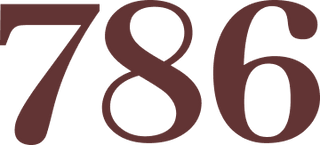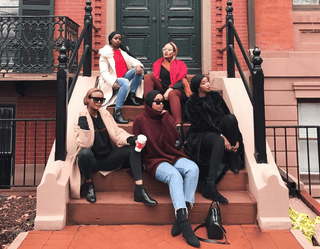It's no secret that the Muslim community is not immune to the growing cognitive dissonance that is ever so rampant in society; Muslims too are guilty of harbouring anti-black sentiments in their communities and their homes. This type of blatant racism has been embedded in our culture for generations and its consequences are etching themselves into the very fabric of our lives today. Muslims have for too long, attributed notions of whiteness with the typical Arab ideal. Wherein an Arab, and by affiliation a Muslim, is predominantly white. Muslims have been represented as one single, homogenous group of people for as far back as any one of us may recall. Asian and Arabs are the predominant image that are presented within this discourse. The African American, Afro-Caribbean, and African Muslim is seemingly erased. Has the time not come where we no longer see the Muslim ummah as one standardized group of people? It seems not. We may have a longer journey than expected.
Take a look at Muslim social media influencers for instance. The internet is not lacking in talented, beautiful, charismatic, and hard working black Muslim women who are writers, artists, entrepreneurs, bloggers, fashion designers, makeup artists, world class athletes, and models. The internet is simply biased and it is this way primarily due to the fact that these minority groups are not getting the same exposure or engagement as their white peers.

Perhaps years of subtle racism and anti-black sentiments that are so rampant is south asian and arab households have moulded and primed our expectations as consumers. We may not outwardly or explicitly show symptoms of our inherent racism, but the fact that black Muslim women are constantly ignored, disregarded, and pushes to the side by marketing companies, event organizers, fashion brands and organizations, it means that there's something still at play. Something we are not assessing at the deeper level we ought to. Dubai Fashion Week 2017 very blatantly excluded black muslim bloggers from their event. Of the thirty seven special guests that were flown into Dubai for the event, only one represented the black Muslim community - Halima Aden, the first hijabi Muslim model on the cover of Vogue.
London Modest Fashion Week in 2018 showcased a mere three black Muslim designers at their event. Prominent YouTuber and blogger Shahd Batal told
The New Arab,
"Black Muslim women have been overlooked for practically forever. Underrepresented when it comes to models, events, campaigns. It's a shame that the Western world has to notice Black Muslimahs for them to include us."
[embed]https://www.youtube.com/watch?v=oHIYbKpJJ3Y[/embed]
Popular Islamic conventions such as RIS and MAS ICNA are known for their whitewashed speaker panels and frequent exclusion of African American Muslim speakers/teachers/scholars. Within your own local community itself, ask yourself why your masjid or mosque is segregated by culture. The majority of masjids have also excluded black Muslims from taking positions of influence such as board seats or even roles as the Imam or leaders of the community. Within local mosque events, black Muslim speakers are few and far between. Arab Muslims dominate the realm of public speaking with little awareness of their own detriment.
The anti-blackness in our communities is going unchecked. With the constant bombardment of Eurocentric beauty ideals that celebrate and idolize anti-melanin skin and encourage women that there is a positive correlation between fairer skin and heightened beauty. This gross slander is reinforcing the inherent racism we have all come face to face with at some point in our lives. We are being primed to forget the injustices of our forefathers who bore no remorse when they forbade their daughters and sons from marrying anyone who was a touch darker than they were. Who engaged in actively excluding the poc and minority voice within our masjids. Who made an effort to keep their children as far away as possible from the notion that they were in some capacity, explicitly racist people.
The online social media sphere is no different. With beauty brands forgoing the option to expand their product line to include shades on the deeper part of the spectrum, to modelling agencies and hijab companies opting to showcase the white Arab ideal. Companies like Inayah are coming under scrutiny for constantly hiring pale models who are not even Muslim, to model their modest Muslim fashion line. Within the blogging sphere, there are similar notes of racism. Instagram pages such as hijabstylelookbook who have over 600k followers, frequently exclude the vast array of black Muslim fashion bloggers online, many of whom have a monumental following.
Black Muslim women are at the forefront of modest fashion and it is disappointing that they are not receiving their due credit.
Basma K, one of the UK's most prominent fashion bloggers, popularized and brought hijabi fashion to the mainstream social sphere in the mid 2000's, yet her growth as a blogger and entrepreneur has been stunted due to the fact that she is not given the same opportunities to engage with brands and products as her non-poc peers.

Black Muslim women are paving the way for everyone else when it comes to modest fashion especially.
Eman Mustafa Bare is a Canadian, award winning journalist who has won the Radio-Television News Directors Association of Canada award. Not only that, but she is also an amazing writer and works as a multimedia editor at Muslim Girl and is a regular writer for Teen Vogue. She has successfully launched her own fashion line (Eman Idil) with a range of ethically sourced products including bags and shoes. She is currently a full time Law Student at Columbia and is working on her second New York Fashion Week show. When talking about the racism she has experienced, she unsurprisingly mentions it came from within her own Muslim community.
"
Most of the racism I experienced growing up was actually from the Muslims in my community, and the Islamic school I went to – Saskatchewan was never the issue. I actually stopped going to the mosque very early on because the behaviour that I saw there was nauseating, and so unIslamic. Even in the cultural communities I grew up in, it was always the women who wore abayas and chastised little girls who didn’t wear hijab that were the meanest. From the backbiting, to the anti-blackness, it really confused me why these people were allowed to go to the mosque or represent Islam in anyway. It’s like no one ever taught them that a hijab doesn’t make you Muslim, it’s your character. My mother would always remind me that Allah swt sees everything. And now I look at where I am, and where they are and I say Alhamdulilah, because Allah swt is the most Just."
Racism has been engrained in our communities and whether we acknowledge it or not, the effects of the systematic desensitization to the trials and strifes of our black Muslim peers is something that we will have to face eventually.
 Perhaps years of subtle racism and anti-black sentiments that are so rampant is south asian and arab households have moulded and primed our expectations as consumers. We may not outwardly or explicitly show symptoms of our inherent racism, but the fact that black Muslim women are constantly ignored, disregarded, and pushes to the side by marketing companies, event organizers, fashion brands and organizations, it means that there's something still at play. Something we are not assessing at the deeper level we ought to. Dubai Fashion Week 2017 very blatantly excluded black muslim bloggers from their event. Of the thirty seven special guests that were flown into Dubai for the event, only one represented the black Muslim community - Halima Aden, the first hijabi Muslim model on the cover of Vogue. London Modest Fashion Week in 2018 showcased a mere three black Muslim designers at their event. Prominent YouTuber and blogger Shahd Batal told The New Arab, "Black Muslim women have been overlooked for practically forever. Underrepresented when it comes to models, events, campaigns. It's a shame that the Western world has to notice Black Muslimahs for them to include us."
[embed]https://www.youtube.com/watch?v=oHIYbKpJJ3Y[/embed]
Popular Islamic conventions such as RIS and MAS ICNA are known for their whitewashed speaker panels and frequent exclusion of African American Muslim speakers/teachers/scholars. Within your own local community itself, ask yourself why your masjid or mosque is segregated by culture. The majority of masjids have also excluded black Muslims from taking positions of influence such as board seats or even roles as the Imam or leaders of the community. Within local mosque events, black Muslim speakers are few and far between. Arab Muslims dominate the realm of public speaking with little awareness of their own detriment.
The anti-blackness in our communities is going unchecked. With the constant bombardment of Eurocentric beauty ideals that celebrate and idolize anti-melanin skin and encourage women that there is a positive correlation between fairer skin and heightened beauty. This gross slander is reinforcing the inherent racism we have all come face to face with at some point in our lives. We are being primed to forget the injustices of our forefathers who bore no remorse when they forbade their daughters and sons from marrying anyone who was a touch darker than they were. Who engaged in actively excluding the poc and minority voice within our masjids. Who made an effort to keep their children as far away as possible from the notion that they were in some capacity, explicitly racist people.
The online social media sphere is no different. With beauty brands forgoing the option to expand their product line to include shades on the deeper part of the spectrum, to modelling agencies and hijab companies opting to showcase the white Arab ideal. Companies like Inayah are coming under scrutiny for constantly hiring pale models who are not even Muslim, to model their modest Muslim fashion line. Within the blogging sphere, there are similar notes of racism. Instagram pages such as hijabstylelookbook who have over 600k followers, frequently exclude the vast array of black Muslim fashion bloggers online, many of whom have a monumental following.
Black Muslim women are at the forefront of modest fashion and it is disappointing that they are not receiving their due credit. Basma K, one of the UK's most prominent fashion bloggers, popularized and brought hijabi fashion to the mainstream social sphere in the mid 2000's, yet her growth as a blogger and entrepreneur has been stunted due to the fact that she is not given the same opportunities to engage with brands and products as her non-poc peers.
Perhaps years of subtle racism and anti-black sentiments that are so rampant is south asian and arab households have moulded and primed our expectations as consumers. We may not outwardly or explicitly show symptoms of our inherent racism, but the fact that black Muslim women are constantly ignored, disregarded, and pushes to the side by marketing companies, event organizers, fashion brands and organizations, it means that there's something still at play. Something we are not assessing at the deeper level we ought to. Dubai Fashion Week 2017 very blatantly excluded black muslim bloggers from their event. Of the thirty seven special guests that were flown into Dubai for the event, only one represented the black Muslim community - Halima Aden, the first hijabi Muslim model on the cover of Vogue. London Modest Fashion Week in 2018 showcased a mere three black Muslim designers at their event. Prominent YouTuber and blogger Shahd Batal told The New Arab, "Black Muslim women have been overlooked for practically forever. Underrepresented when it comes to models, events, campaigns. It's a shame that the Western world has to notice Black Muslimahs for them to include us."
[embed]https://www.youtube.com/watch?v=oHIYbKpJJ3Y[/embed]
Popular Islamic conventions such as RIS and MAS ICNA are known for their whitewashed speaker panels and frequent exclusion of African American Muslim speakers/teachers/scholars. Within your own local community itself, ask yourself why your masjid or mosque is segregated by culture. The majority of masjids have also excluded black Muslims from taking positions of influence such as board seats or even roles as the Imam or leaders of the community. Within local mosque events, black Muslim speakers are few and far between. Arab Muslims dominate the realm of public speaking with little awareness of their own detriment.
The anti-blackness in our communities is going unchecked. With the constant bombardment of Eurocentric beauty ideals that celebrate and idolize anti-melanin skin and encourage women that there is a positive correlation between fairer skin and heightened beauty. This gross slander is reinforcing the inherent racism we have all come face to face with at some point in our lives. We are being primed to forget the injustices of our forefathers who bore no remorse when they forbade their daughters and sons from marrying anyone who was a touch darker than they were. Who engaged in actively excluding the poc and minority voice within our masjids. Who made an effort to keep their children as far away as possible from the notion that they were in some capacity, explicitly racist people.
The online social media sphere is no different. With beauty brands forgoing the option to expand their product line to include shades on the deeper part of the spectrum, to modelling agencies and hijab companies opting to showcase the white Arab ideal. Companies like Inayah are coming under scrutiny for constantly hiring pale models who are not even Muslim, to model their modest Muslim fashion line. Within the blogging sphere, there are similar notes of racism. Instagram pages such as hijabstylelookbook who have over 600k followers, frequently exclude the vast array of black Muslim fashion bloggers online, many of whom have a monumental following.
Black Muslim women are at the forefront of modest fashion and it is disappointing that they are not receiving their due credit. Basma K, one of the UK's most prominent fashion bloggers, popularized and brought hijabi fashion to the mainstream social sphere in the mid 2000's, yet her growth as a blogger and entrepreneur has been stunted due to the fact that she is not given the same opportunities to engage with brands and products as her non-poc peers.
 Black Muslim women are paving the way for everyone else when it comes to modest fashion especially. Eman Mustafa Bare is a Canadian, award winning journalist who has won the Radio-Television News Directors Association of Canada award. Not only that, but she is also an amazing writer and works as a multimedia editor at Muslim Girl and is a regular writer for Teen Vogue. She has successfully launched her own fashion line (Eman Idil) with a range of ethically sourced products including bags and shoes. She is currently a full time Law Student at Columbia and is working on her second New York Fashion Week show. When talking about the racism she has experienced, she unsurprisingly mentions it came from within her own Muslim community.
"Most of the racism I experienced growing up was actually from the Muslims in my community, and the Islamic school I went to – Saskatchewan was never the issue. I actually stopped going to the mosque very early on because the behaviour that I saw there was nauseating, and so unIslamic. Even in the cultural communities I grew up in, it was always the women who wore abayas and chastised little girls who didn’t wear hijab that were the meanest. From the backbiting, to the anti-blackness, it really confused me why these people were allowed to go to the mosque or represent Islam in anyway. It’s like no one ever taught them that a hijab doesn’t make you Muslim, it’s your character. My mother would always remind me that Allah swt sees everything. And now I look at where I am, and where they are and I say Alhamdulilah, because Allah swt is the most Just."
Racism has been engrained in our communities and whether we acknowledge it or not, the effects of the systematic desensitization to the trials and strifes of our black Muslim peers is something that we will have to face eventually.
Black Muslim women are paving the way for everyone else when it comes to modest fashion especially. Eman Mustafa Bare is a Canadian, award winning journalist who has won the Radio-Television News Directors Association of Canada award. Not only that, but she is also an amazing writer and works as a multimedia editor at Muslim Girl and is a regular writer for Teen Vogue. She has successfully launched her own fashion line (Eman Idil) with a range of ethically sourced products including bags and shoes. She is currently a full time Law Student at Columbia and is working on her second New York Fashion Week show. When talking about the racism she has experienced, she unsurprisingly mentions it came from within her own Muslim community.
"Most of the racism I experienced growing up was actually from the Muslims in my community, and the Islamic school I went to – Saskatchewan was never the issue. I actually stopped going to the mosque very early on because the behaviour that I saw there was nauseating, and so unIslamic. Even in the cultural communities I grew up in, it was always the women who wore abayas and chastised little girls who didn’t wear hijab that were the meanest. From the backbiting, to the anti-blackness, it really confused me why these people were allowed to go to the mosque or represent Islam in anyway. It’s like no one ever taught them that a hijab doesn’t make you Muslim, it’s your character. My mother would always remind me that Allah swt sees everything. And now I look at where I am, and where they are and I say Alhamdulilah, because Allah swt is the most Just."
Racism has been engrained in our communities and whether we acknowledge it or not, the effects of the systematic desensitization to the trials and strifes of our black Muslim peers is something that we will have to face eventually.


